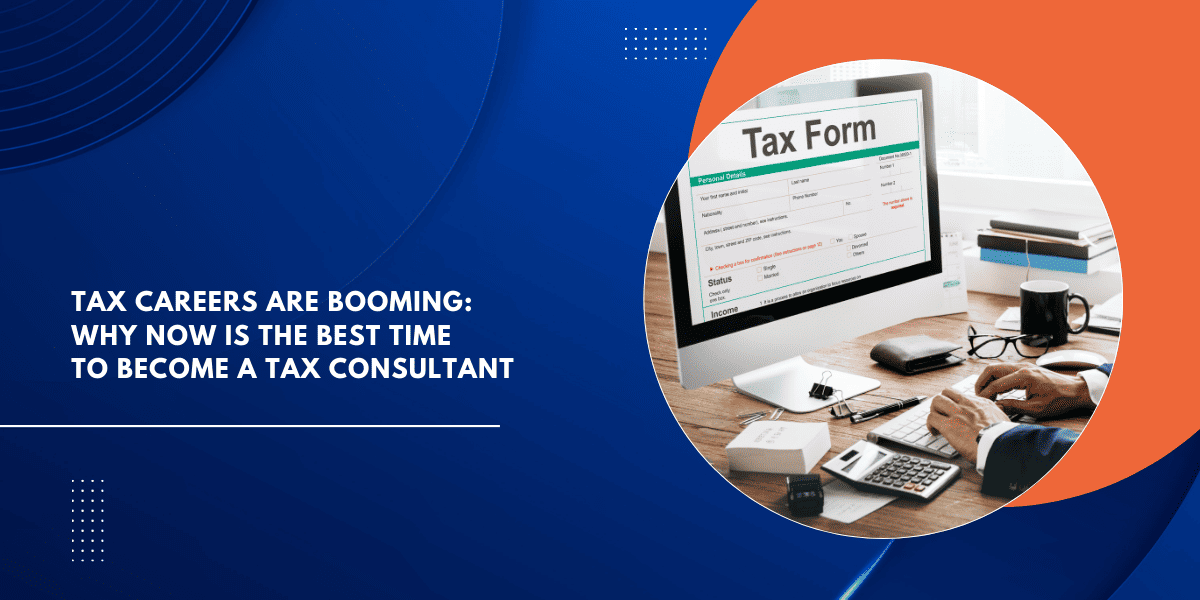Blog written by Preethi Durga, a career strategist and education innovator.
Introduction
Think about the last time you made an online purchase—whether it was a last-minute gadget, groceries, or even a luxury item. E-commerce has become an essential part of our lives, and behind every seamless shopping experience is a vast industry driving innovation, logistics, and digital marketing. With global online sales expected to skyrocket to $8.1 trillion by 2026 (Statista), companies are racing to hire professionals who can navigate this digital-first economy.
From AI-driven personalization to same-day deliveries, the e-commerce revolution isn’t slowing down anytime soon. If you’re looking for a high-growth career with diverse opportunities—whether in digital marketing, supply chain management, or data analytics—e-commerce is where the action is. But how do you stand out in this fast-evolving industry? Let’s explore the must-have skills, certifications, and trends that can set you up for success.
Industry Spotlight
The E-commerce Surge – E-commerce has transformed from a convenience to a necessity. A recent IBEF report states that India’s e-commerce market is set to reach $350 billion by 2030, driven by increasing internet penetration, digital payments, and AI-powered shopping experiences. Globally, giants like Amazon, Flipkart, Shopify, and Alibaba continue to expand, creating a vast job market for tech-savvy professionals. Whether you’re eyeing a role in logistics, digital marketing, or web development, e-commerce offers dynamic career opportunities.
Global Trends Affecting E-commerce Careers
1. AI & Automation
Artificial Intelligence (AI) is revolutionizing e-commerce, from personalized recommendations to automated customer support. Instead of just browsing, shoppers now receive highly relevant product suggestions tailored to their preferences.
For example, Amazon’s AI-powered recommendation engine has played a crucial role in its success. Using predictive analytics, the system suggests products based on browsing history, past purchases, and user behavior. This technology has boosted customer purchases by 35%, significantly increasing Amazon’s revenue. Other brands like Netflix and Flipkart have adopted similar models to enhance customer engagement.
2. Rise of Direct-to-Consumer (DTC) Brands
The Direct-to-Consumer (DTC) model is transforming retail by allowing brands to sell directly to customers through their own websites, apps, and social media platforms. This approach eliminates intermediaries, giving companies greater control over pricing, branding, and customer relationships.
A great example is Mamaearth, an Indian personal care brand that has built a strong DTC presence. By leveraging digital marketing, influencer collaborations, and data-driven product recommendations, the company has cultivated a loyal customer base. Instead of relying solely on traditional retail channels, Mamaearth uses targeted social media ads, personalized email campaigns, and interactive content to engage customers and drive sales.
Other brands like boAt, Lenskart, and Sugar Cosmetics have also thrived using the DTC model, capitalizing on e-commerce platforms, direct customer feedback, and digital-first strategies to scale rapidly. As consumer shopping preferences shift towards convenience, customization, and direct engagement, the DTC model is expected to grow, offering exciting career opportunities in digital marketing, e-commerce strategy, and customer experience management.
3. Social Commerce is on the Rise
Social media is evolving into a powerful e-commerce hub, with platforms like Instagram, TikTok, and WhatsApp transforming how brands connect with consumers. This shift is driving demand for roles in digital marketing, influencer collaborations, and social commerce strategy. Companies are increasingly leveraging targeted ads, shoppable posts, and livestream shopping—an industry projected to see exponential growth in the coming years.
Platforms like Instagram, Facebook Marketplace, and TikTok Shop have transformed media into sales channels. In India, Meesho has emerged as a leader in social commerce, enabling small businesses to sell products via WhatsApp and Facebook.
4. Growth of Sustainable & Ethical E-commerce
As environmental consciousness grows, businesses are prioritizing eco-friendly packaging, carbon-neutral shipping, and sustainable supply chain practices. This shift is fueling demand for sustainability experts who can develop and implement green strategies in logistics and operations, ensuring compliance with evolving environmental standards.
Consumers are increasingly favoring eco-friendly brands. Companies like Brown Living and Bare Necessities in India focus on zero-waste packaging and sustainable products, making sustainability a key differentiator in e-commerce.
5. Omnichannel Retailing and Customer Experience
Modern consumers demand a unified shopping experience across online and offline channels, driving the need for professionals skilled in CRM software, data analytics, and UX design. Companies that successfully integrate digital and in-store experiences are gaining a competitive edge, enhancing customer loyalty and boosting revenue.
A great example of seamless online-offline integration is Nike’s “Nike Live” concept stores. These stores use data from the Nike app to personalize in-store experiences, offering product recommendations based on a customer’s online activity. Shoppers can reserve items online for in-store pickup, scan QR codes for more product details, and even unlock member-exclusive deals. This blend of digital convenience and physical retail has significantly boosted customer engagement and brand loyalty.
Job Demand & Hiring Trends
With e-commerce expanding at an unprecedented rate, companies are actively seeking skilled professionals across various domains. Here’s a look at some of the hottest job roles and what they offer:
1. E-commerce Manager
Oversee online sales strategies, optimize customer experience, and drive revenue growth. (Average Salary: ₹8–15 LPA in India, $80K+ in the U.S.).
For example, Aditi Sharma, a marketing executive at Nykaa, recognized the demand for performance marketing and SEO in e-commerce. She completed the Google Digital Marketing & E-commerce Certification, gaining expertise in Google Ads, Meta Ads, and email automation.
With her new skills, she transitioned into an E-commerce Manager role, leading digital campaigns and boosting online sales by 20%. Her journey highlights how targeted upskilling can fast-track career growth in the evolving e-commerce industry.
2. Digital Marketing Specialist
Leverage SEO, social media, and paid ads to boost brand visibility and sales. (Average Salary: ₹5–12 LPA in India, $65K+ in the U.S.)
3. Supply Chain & Logistics Analyst
Optimize inventory, streamline deliveries, and enhance operational efficiency. (Average Salary: ₹6–14 LPA in India, $75K+ in the U.S.)
4. Data Analyst (E-commerce Analytics)
Analyze consumer behavior, pricing trends, and website performance to maximize conversions. (Average Salary: ₹7–16 LPA in India, $85K+ in the U.S.)
5. UX/UI Designer (E-commerce Platforms)
Create seamless and engaging shopping experiences through intuitive design. (Average Salary: ₹6–12 LPA in India, $70K+ in the U.S.)
6. Customer Experience Manager
Enhance customer satisfaction through data-driven insights, chatbots, and personalized interactions. (Average Salary: ₹6–10 LPA in India, $65K+ in the U.S.)
With the rise of AI, automation, and personalized shopping, companies are now prioritizing candidates with skills in data analytics, digital marketing, and supply chain tech. If you’re aiming for a lucrative career in e-commerce, now is the perfect time to upskill and seize these opportunities! Companies like Amazon, Flipkart, Meesho, Nykaa, and Reliance Digital are actively hiring professionals with specialized e-commerce skills.
Looking to create a thriving career in e-commerce? Reach out to the experts at NextMovez for tailored advice and start paving the way to your future!
Emerging Skills and Certifications Required to Boost Your E-commerce Career
To stay competitive in the e-commerce industry, professionals must develop a blend of technical and strategic skills:
- SEO & SEM Expertise – Knowledge of Google Ads, keyword research, and analytics.
- E-commerce Platforms – Proficiency in Shopify, Magento, and WooCommerce.
- Data Analytics – Mastery of tools like Google Analytics, Power BI, and Tableau.
- AI & Chatbot Integration – Understanding how AI enhances customer engagement.
- Supply Chain & Logistics Management – Expertise in last-mile delivery and inventory control.
- Cybersecurity & Payment Systems – Knowledge of secure payment gateways and fraud prevention.
Certifications Required
- Google Digital Marketing & E-commerce Certificate – Covers essential marketing and analytics skills.
- HubSpot Content Marketing Certification – Ideal for those focusing on SEO and content strategy.
- Meta (Facebook) Blueprint Certification – A must-have for social media marketing professionals.
- Amazon Advertising Certification – Focuses on sponsored ads and marketplace optimization.
- Certified Supply Chain Professional (CSCP) – Best for logistics and supply chain roles.
- UI/UX Design Specialization (Coursera, Google) – Crucial for e-commerce web designers.
Expert Insights: What Industry Leaders Say?
According to Kunal Bahl, Co-founder of Snapdeal, “E-commerce success hinges on data-driven decision-making and customer experience. Professionals who can blend technology with business strategy will lead the future.”
A great example of this is Amazon India, which leverages AI-powered customer insights to enhance personalized recommendations, leading to a 35% increase in customer purchases through predictive analytics.
Similarly, an honoured VP at Flipkart, emphasizes, “Understanding AI-driven personalization and logistics optimization will be key skills in the coming decade.”
Flipkart has already implemented AI-based logistics tracking, reducing delivery times by 20% and enhancing last-mile connectivity, significantly improving customer satisfaction and operational efficiency.
Future Outlook & Predictions
- The Indian e-commerce sector is projected to grow at CAGR 19.24% between 2023-2030.
- AI-driven personalization is expected to power 70% of customer interactions in the next five years.
- Digital wallets and UPI payments will dominate transactions, increasing demand for fintech integration specialists.
- Direct-to-Consumer (DTC) brands are on the rise, creating a need for niche e-commerce marketing roles.
Conclusion: What This Means for Aspiring Professionals?
The e-commerce landscape is rapidly evolving, creating a wealth of opportunities for professionals across various industries. Whether you’re just starting your career, seeking a career shift, or looking to enhance your existing expertise, now is the perfect time to embrace the e-commerce revolution and unlock your potential.
Here’s how you can take charge of your career in e-commerce:
- Upskill with Specialized Courses: Invest in courses that align with your interests, such as Shopify e-commerce development, data analytics, or SEO for e-commerce. These will help you stay ahead of the curve.
- Gain Hands-On Experience: Start building your portfolio by working on real-world projects, volunteering, or collaborating with startups in the e-commerce sector to sharpen your skills.
- Leverage Networking Opportunities: Attend e-commerce webinars, industry conferences, and connect with professionals on platforms like LinkedIn to broaden your industry knowledge and job prospects.
- Take action now—invest in your growth, gain the practical experience needed, and start building your future in the booming e-commerce sector.
Resources & References Used






















